本文最后更新于 2024年11月7日 下午
之前的SpringBoot期末复习中多包含了Redis和SpringCloud的知识点,现在划分开来方便复习
毕设就是用Spring Cloud整的,多看看还是比较好,虽然我已经写完了哈哈哈哈
SpringCloud(1-3简答、4-5选择、6编程)
1、微服务架构演进,课上前后讲了两遍,印象不深的去看视频(简答题重点考区)
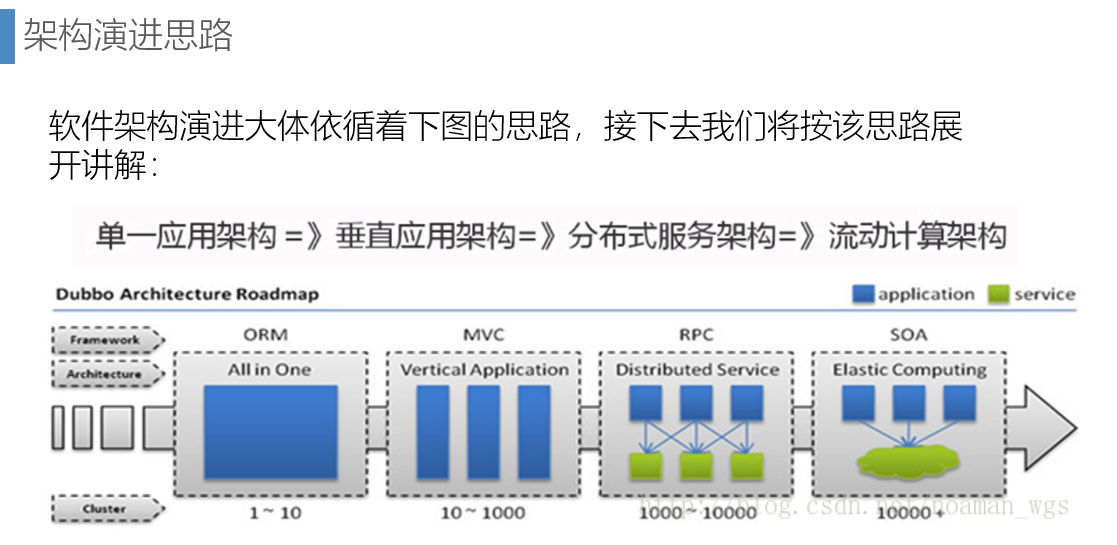
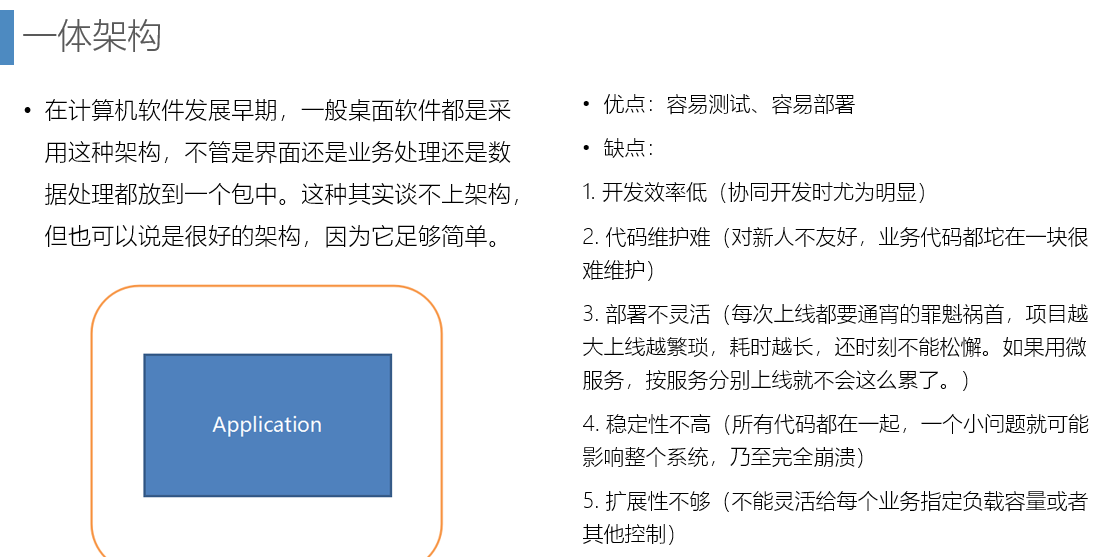
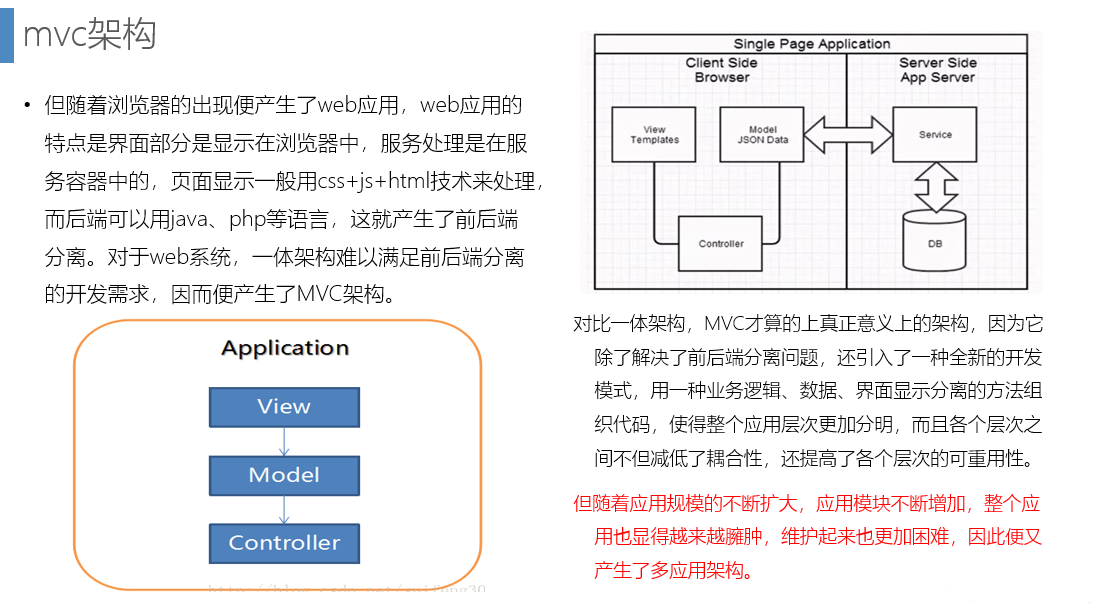
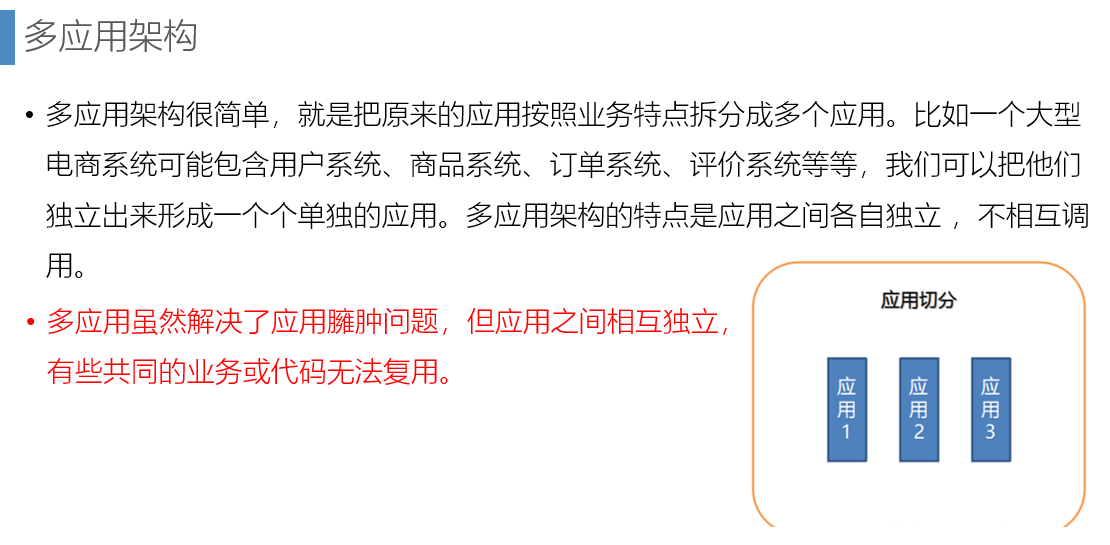
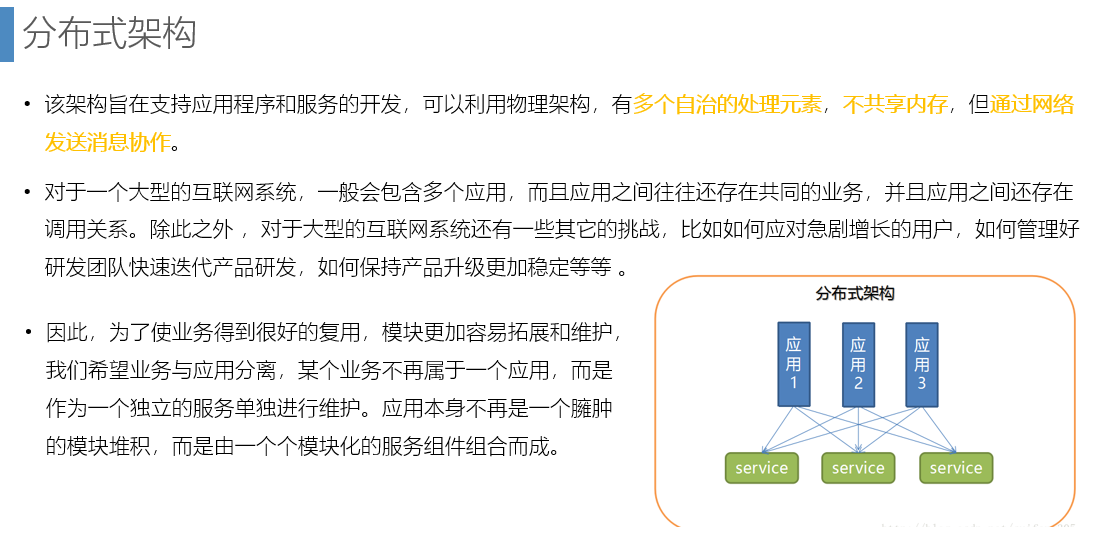
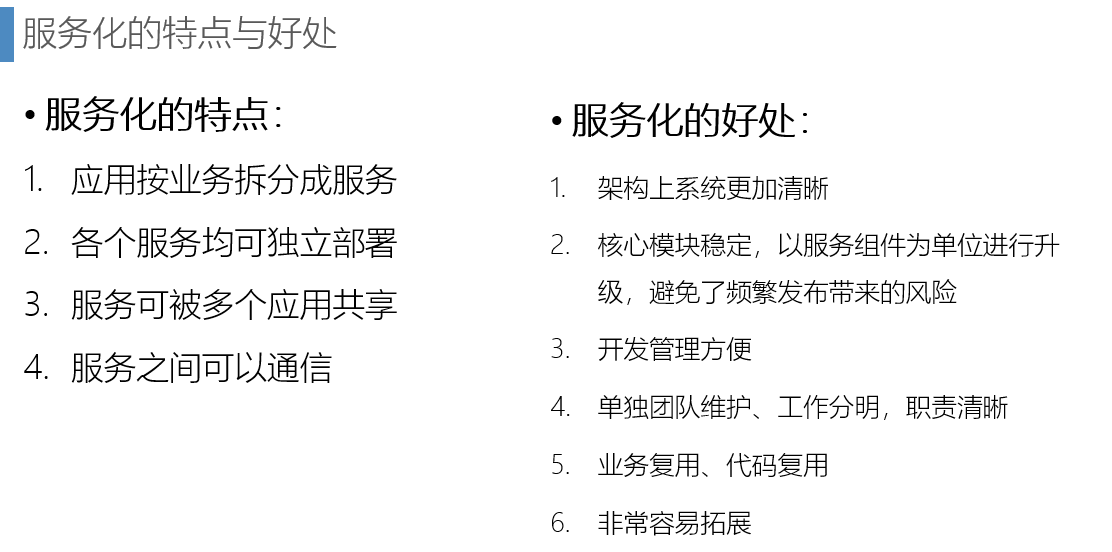
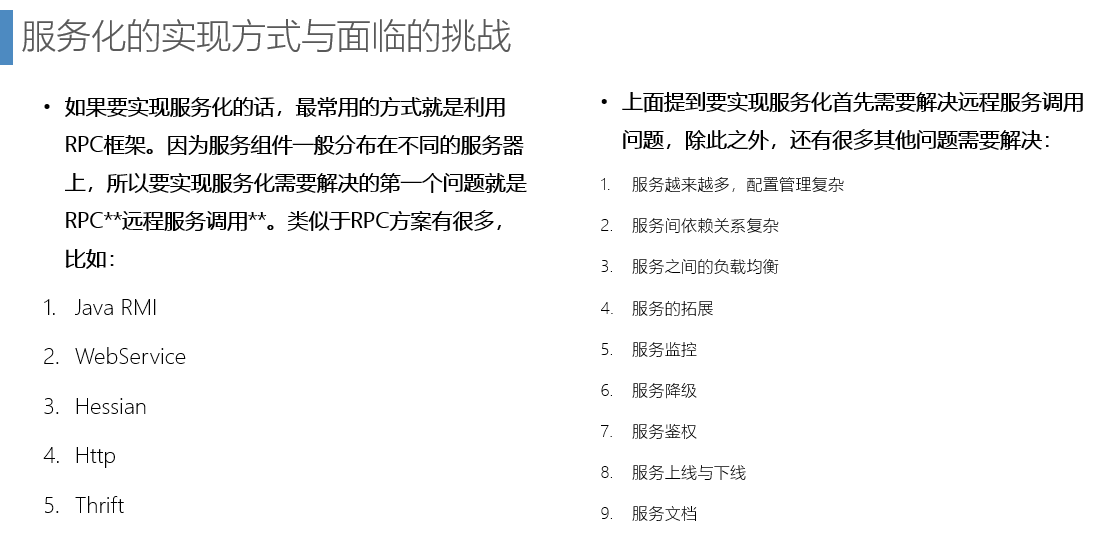
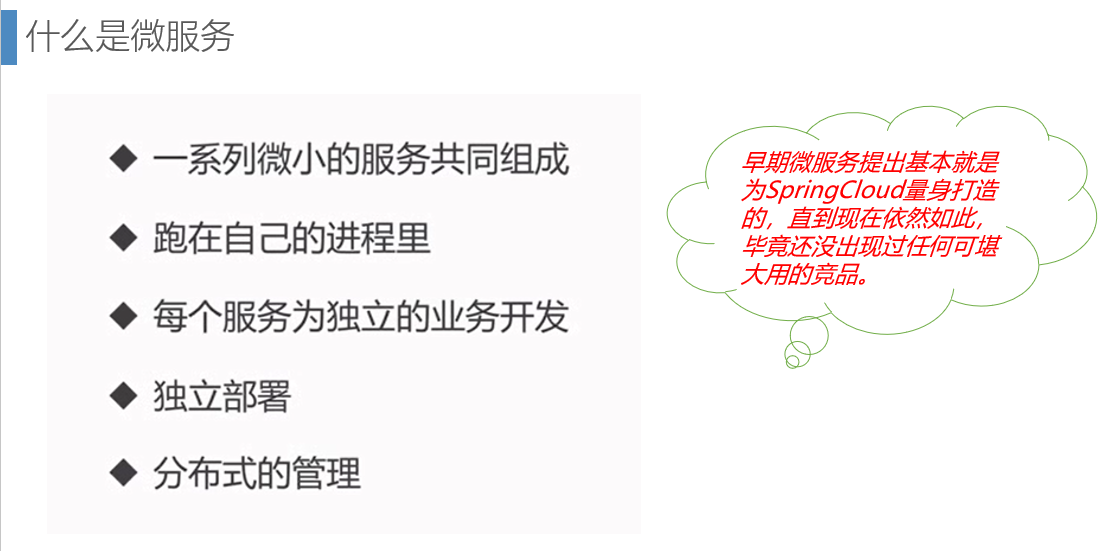
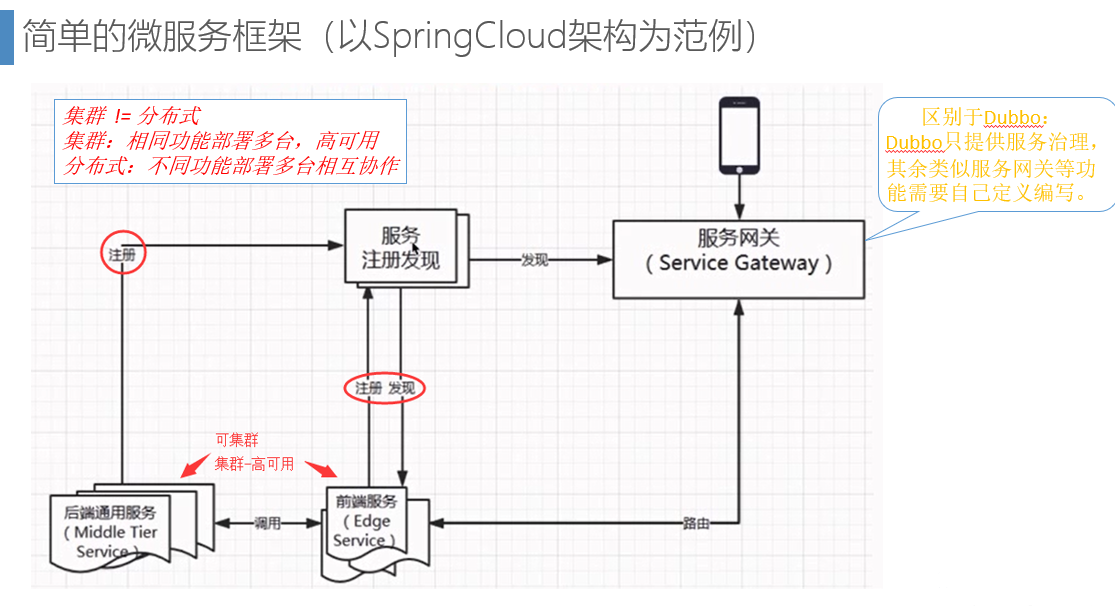
2、是什么,特点,优势
(1)是什么
Spring cloud是一个开发工具集,含多个子项目
- 利用spring Boot的开发便利
- 主要是基于对netfilix开源组件进行封装
Spring cloud 简化了分布式开发
(2)特点
Spring Cloud 是一套完整的微服务解决方案,基于 Spring Boot 框架,准确的说,它不是一个框架,而是一个大的容器,它将市面上较好的微服务框架集成进来,从而简化了开发者的代码量
(3)优势
- 集大成者
• Spring Cloud 包含了微服务架构的方方面面
- 约定优于配置
• 基于注解,没有配置文件
- 轻量级组件
• Spring Cloud 整合的组件大多比较轻量级,且都是各自领域的佼佼者
- 开发简便
• Spring Cloud 对各个组件进行了大量的封装,从而简化了开发
- 开发灵活
• Spring Cloud 的组件都是解耦的,开发人员可以灵活按需选择组件
3、知识沉淀——微服务学习过程中必须了解的5个问题
问题1:分布式系统中为什么需要注册中心?
问题2:服务多的时候,如何找到最适合我的服务?
问题3:客户端和服务端所用语言不同怎么办?
问题4:原有项目如何拆分成微服务项目?
问题5:哪些项目不适合演进成微服务架构?
问题1:分布式系统中为什么需要注册中心?
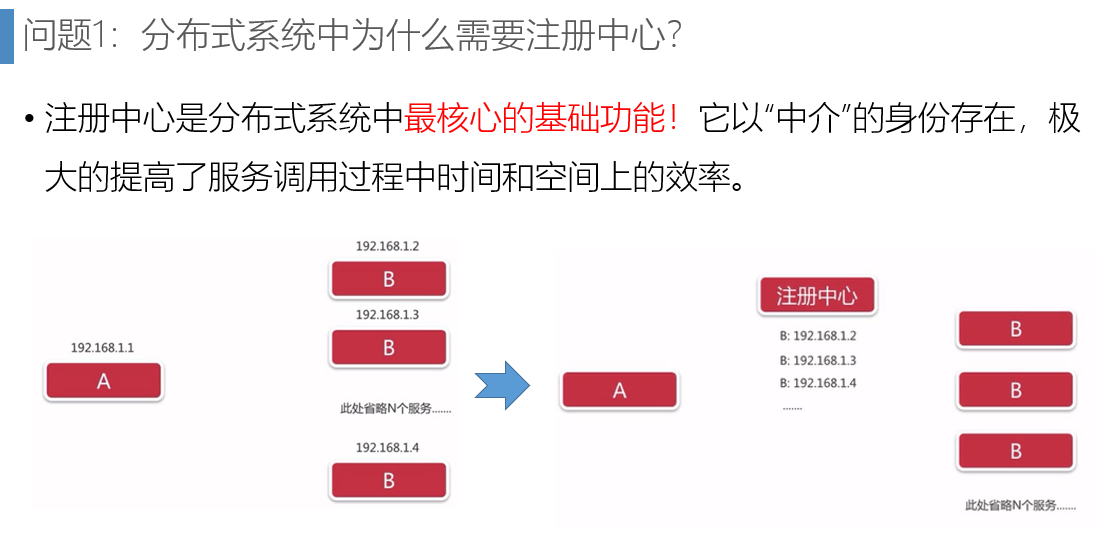
问题2:服务多的时候,如何找到最适合我的服务?
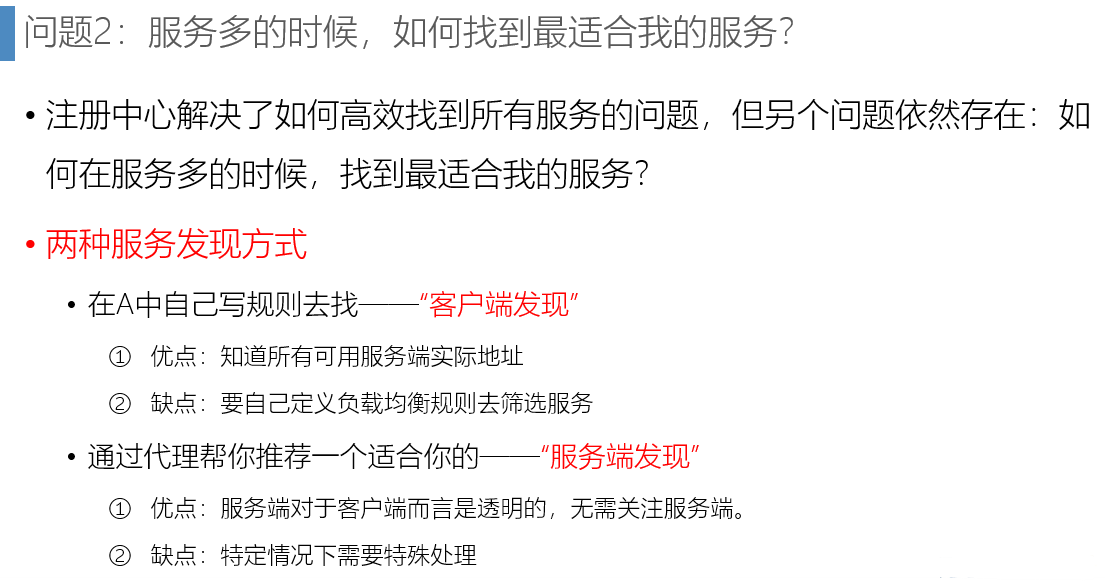
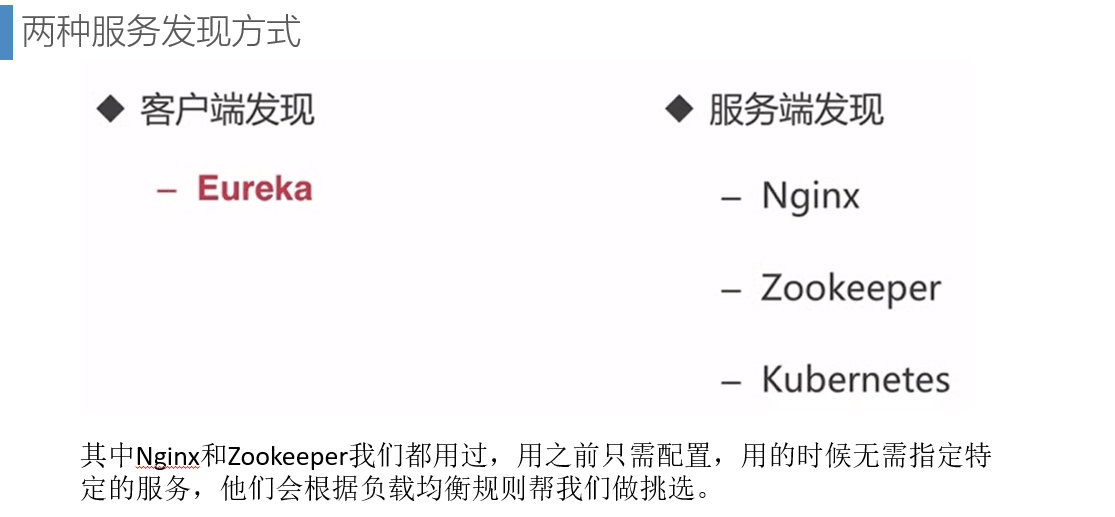
问题3:客户端和服务端所用语言不同怎么办?
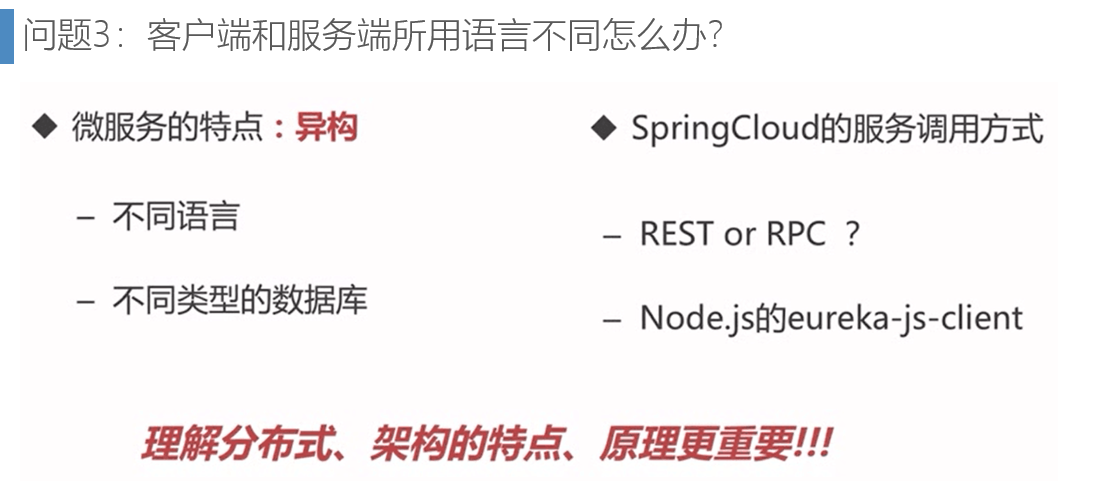
问题4:原有项目如何拆分成微服务项目?
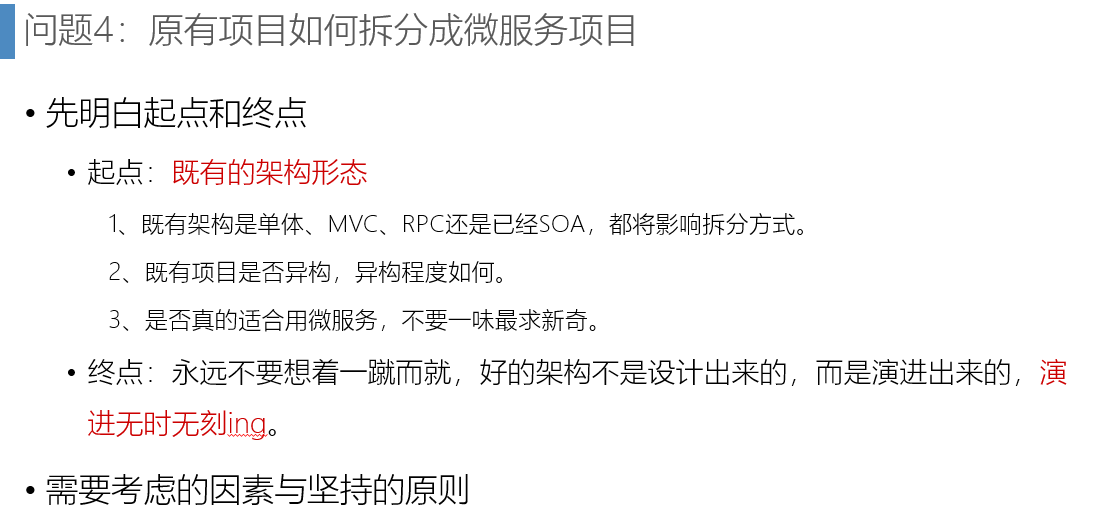
问题5:哪些项目不适合演进成微服务架构?
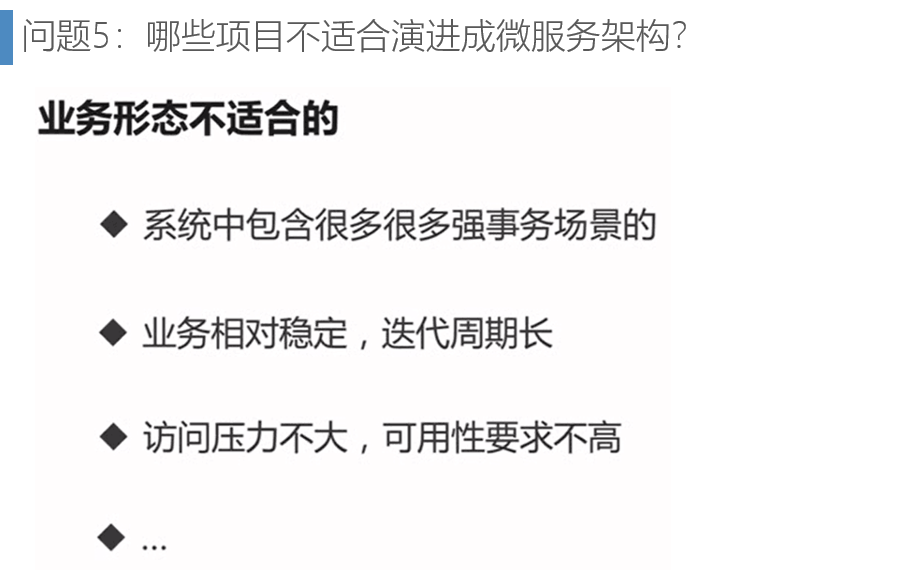
4、注册中心Eureka 配置、注解、运行效果、高可用!!
application.yml
1
2
3
4
| eureka:
client:
registerWithEureka: false
fetchRegistry: false
|
application-e1.yml
1
2
3
4
5
6
7
8
9
| server:
port: 8761
eureka:
instance:
hostname: eureka-1
client:
service-url:
defaultZone: http://eureka-2:8762/eureka/
|
application-e2.yml
1
2
3
4
5
6
7
8
9
| server:
port: 8762
eureka:
instance:
hostname: eureka-2
client:
service-url:
defaultZone: http://eureka-1:8761/eureka/
|
5、服务消费者RestTemplate和Feign 配置、注解、运行效果
(1)RestTemplate
AppClient
1
2
3
4
5
6
7
8
9
10
11
12
13
14
15
16
17
18
19
20
21
22
23
24
25
26
27
28
29
30
31
32
33
34
35
36
37
38
39
40
41
42
43
44
45
46
47
48
49
| package com.xxx.controller;
@RestController
public class ClientController {
@Autowired
private RestTemplate restTemplate;
@RequestMapping("getmsg")
public String getMsg(String name) {
String response = restTemplate.getForObject("http://APPSERVICE/hello?name="+name, String.class);
return response;
}
@PostMapping("goods")
public String addGood(@Valid Goods goods) throws Exception{
String response = restTemplate.postForObject("http://APPSERVICE/goods",goods, String.class);
return response;
}
@PutMapping("goods")
public void editGoods(Goods goods) {
restTemplate.put("http://APPSERVICE/goods",goods);
}
@DeleteMapping("goods/{gid}")
public void removeGoods(@PathVariable int gid) {
restTemplate.delete("http://APPSERVICE/goods/"+gid, String.class);
}
@GetMapping("goods/{gid}")
public Goods findGood(@PathVariable int gid) {
Goods response = restTemplate.getForObject("http://APPSERVICE/goods/"+gid, Goods.class);
return response;
}
}
|
AppService
1
2
3
4
5
6
7
8
9
10
11
12
13
14
15
16
17
18
19
20
21
22
23
24
25
26
27
28
29
30
31
32
33
34
35
36
37
38
39
40
41
42
43
44
45
46
47
48
49
50
51
52
53
54
55
56
| @RestController
public class GoodsController {
@Value("${server.port}")
private int port;
@Autowired
private GoodsService goodsService;
@PostMapping("goods")
public String addGoods(@RequestBody Goods goods,BindingResult br) {
if(br.hasErrors()) {
return br.getFieldError().getDefaultMessage();
}else {
System.out.println(goods.getGname());
System.out.println(goods.getGname());
System.out.println(goods.getGname());
System.out.println(goods.getGid());
goodsService.addGoods(goods);
return "添加成功";
}
}
@PutMapping("goods")
public String editGoods(@RequestBody Goods goods) {
goodsService.editGoods(goods);
return "修改成功";
}
@DeleteMapping("goods/{gid}")
public String removeGoods(@PathVariable int gid) {
goodsService.removeGoods(gid);
return "删除成功";
}
@GetMapping("goods/less/{price}/{type}")
public List<Goods> findGoods(@PathVariable double price,@PathVariable String type){
GoodsExample ge = new GoodsExample();
ge.createCriteria().andTypeEqualTo(type).andPriceLessThan(price);
return goodsService.findByCondition(ge);
}
@GetMapping("goods/{gid}")
public Goods findGood(@PathVariable int gid){
return goodsService.findByGid(gid);
}
}
|
AppClientApplication
1
2
3
4
5
6
7
8
9
10
11
12
13
14
15
16
17
| package com.xxx;
@EnableEurekaClient
@SpringBootApplication
public class AppClientApplication {
public static void main(String[] args) {
SpringApplication.run(AppClientApplication.class, args);
}
@Bean
@LoadBalanced
public RestTemplate getRestTemplate() {
RestTemplate restTemplate = new RestTemplate();
return restTemplate;
}
}
|
(2)Feign
1
2
3
4
5
6
7
8
9
10
11
12
| package com.xxx;
@EnableEurekaClient
@EnableFeignClients
@SpringBootApplication
public class FeignClientApplication {
public static void main(String[] args) {
SpringApplication.run(FeignClientApplication.class, args);
}
}
|
1
2
3
4
5
6
7
8
| package com.xxx.client;
@FeignClient("APPSERVICE")
public interface HelloClient {
@RequestMapping("hello")
public String sayHello(@RequestParam("name") String name);
}
|
1
2
3
4
5
6
7
8
9
10
11
12
13
14
15
16
17
18
19
| package com.xxx.controller;
@RestController
public class ClientController {
@Autowired
private HelloClient helloClient;
@RequestMapping("msg")
public String getMsg(String name) {
String response = helloClient.sayHello(name);
return response;
}
@RequestMapping("/hi")
public String sayHi() {
return "hi";
}
}
|
6、SpringCloud编程题只靠配置文件写法,不考Java代码
(1)AppClient
application.yml
1
2
3
4
5
6
7
8
9
10
11
| server:
port: 8888
spring:
application:
name: appclient
eureka:
client:
service-url:
defaultZone: http://eureka-1:8761/eureka/
|
(2)AppService
application.yml
1
2
3
4
5
6
7
8
9
10
11
12
13
14
15
16
| eureka:
client:
service-url:
defaultZone: http://eureka-1:8761/eureka/
spring:
application:
name: appservice
datasource:
url: jdbc:mysql://localhost:3306/shop?characterEncoding=utf8&useSSL=false&serverTimezone=Asia/Shanghai&rewriteBatchedStatements=true
username: root
password: 123456
driver-class-name: com.mysql.cj.jdbc.Driver
mybatis:
mapper-locations: classpath:com/etc/mapper/xml/GoodsMapper.xml
|
application-as1.yml
application-as2.yml
application-as3.yml
(3)EurekaServer-ha
application.yml
1
2
3
4
| eureka:
client:
registerWithEureka: false
fetchRegistry: false
|
application-e1.yml
1
2
3
4
5
6
7
8
9
| server:
port: 8761
eureka:
instance:
hostname: eureka-1
client:
service-url:
defaultZone: http://eureka-2:8762/eureka/
|
application-e2.yml
1
2
3
4
5
6
7
8
9
| server:
port: 8762
eureka:
instance:
hostname: eureka-2
client:
service-url:
defaultZone: http://eureka-1:8761/eureka/
|
题型:
单选:10-15题 (每题2分)
多选:5-8题(每题3分)
判断:0-10题(每题1分)
简答:6-8题(每题6分)
编程:1-2题(每题10分)














